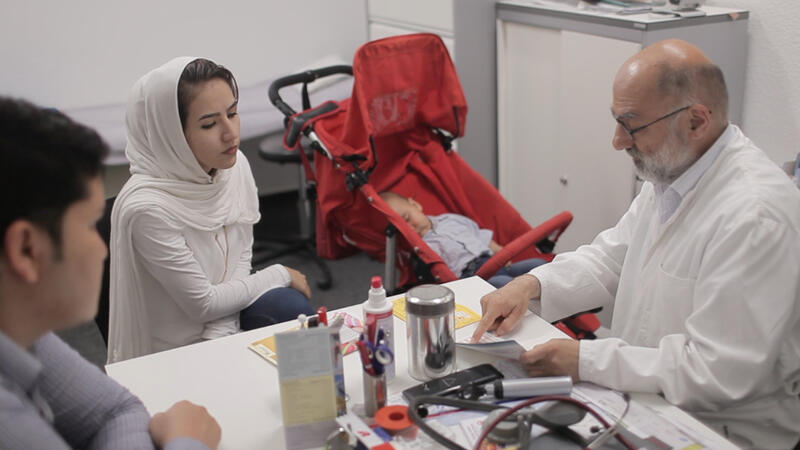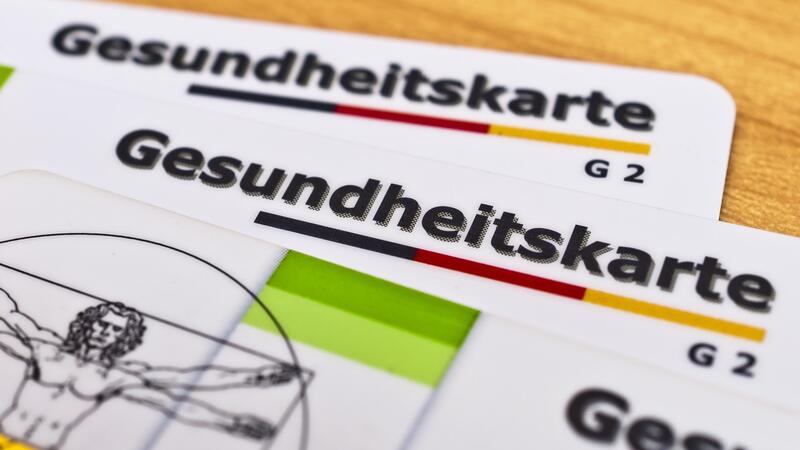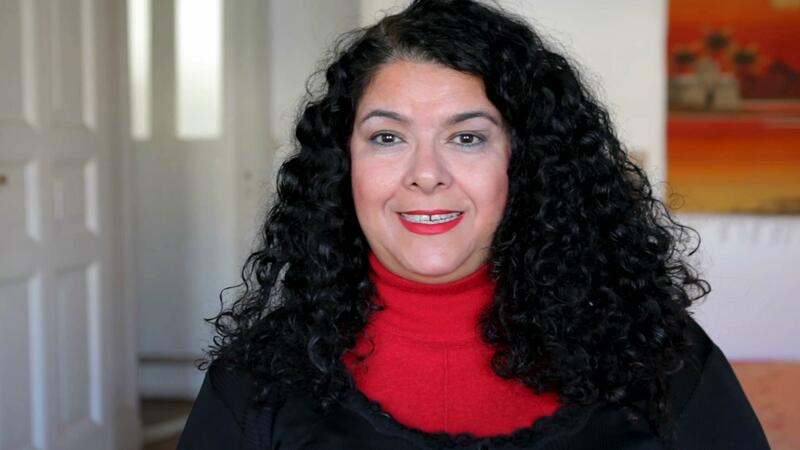Joining A Sports Club
How do I become a member of a sports club?
Whether you are into basketball, prefer to dance or like to go swimming - you have various options when it comes to working out. And one of them is to join a sports club. You can practise your favourite sport with other people who enjoy it in a sports club. Or maybe try a new sport. You will find a sports club in almost every town and county in Germany.
What do I need to know?
A sports club is a group of people who come together to do sports. In Germany, there are various ways for individuals to organise themselves in a group - the most common one is to form a "Verein", i.e. a club or association. A "Verein" is an official group of people who want to pursue a specific cause or idea together. That could be a sports club or an association focusing on political or personal interests or hobbies. One defining feature of clubs and associations is that they do not want to earn money through their activities. Another one is that a "Verein" is not a temporary gathering of people, but for the long term. Unlike gatherings of friends for leisure activities, clubs/associations have specific rules.
There are legal requirements to observe for founding an association or club. For example, every club needs a certain number of people as founders and a leader. The management of an association/club is called the board of directors. All members of an association/club can elect the board and stand for election. Members are people who join the association/club - they organise the association and can take on various tasks within it. For instance, they take care of the finances, repair the place or offer training sessions. But not every member has to take on a task. Participation in associations/clubs is voluntary and often cost-free. The members determine how the association/club is organised through the statute of the association/club. The statutes enclose the purpose of the association/club and the frequency of the general meetings. It can also stipulate a membership fee and its amount.
An association/club is officially registered when members register it with a court. Then the association/club is formally enlisted in the Register of Associations ("Vereinsregister"). Registered associations/clubs have the abbreviation "e.V." at the end of their name. It stands for "registered association/club" and means the association has legal capacity. Therefore, a registered association/club can exercise rights and obligations in a court of law as a body. That is a particularly crucial point for the members who lead the association/club: they will not be personally liable in possible court proceedings; the association/club will be.
Not all sports clubs offer the same range of sports. The offers often depend on the number of members, the percentage of members interested in a particular sport, whether there is a place available for training and the number of coaches available. Some clubs therefore only offer one sport. These are often smaller clubs. However, you will often find different sports to choose from in larger clubs. These are usually ball games such as football, handball or basketball. But many clubs also offer dancing, athletics and gymnastics.
Many sports clubs have the name of a specific sport in their title, such as "Gymnastics Club." But that doesn't necessarily mean that gymnastics is the only offer - they often also offer other sports. Check out the club's website; there, you should be able to find all they have to offer.
You can often find a list of all sports clubs and an overview of what they offer on your city administration's website. You can also use Google to search for a sports club in your area: enter your city's name, the sport you are looking for, and the word "Verein" in the search box to find the sports clubs nearby.
Many sports clubs have teams or training groups just for girls or women, or boys or men. That is especially the case in sports where teams or individuals compete against each other, for instance, in football or basketball, tennis or gymnastics. Also, the teams/athletes are often divided according to age, so only people in the same age range train together. The same applies to competitions: only teams or athletes of the same gender and age compete so that the competition remains fair. You can learn how to find a sports club in your area in the section "Where can I search for a sports club nearby?".
A smaller range of sports is often available in sports clubs for people with disabilities. In larger cities, you could find clubs that offer so-called parasports, i.e. sports for people with disabilities. The German Disabled Sports Association e.V. (Deutsche Behindertensportverband e.V.) presents various offers at www.parasport.de. On their website, you can also search for clubs in your area with offers for people with disabilities.
You can learn more about living with disabilities in Germany and where to get support in our chapter "Living with a Disability".
Sports clubs specific to children and young people are relatively rare in Germany. However, most sports clubs offer sports groups or teams for different ages. So you should be able to find groups or teams for children and teens in many sports clubs. Children and teens of (roughly) the same age can do sports together in these groups/teams. Some clubs may have separate teams for girls and boys. That is often the case with sports where children or teens play against each other.
You can often find offers for children and teens on the website of your city or municipality. You can also use Google to search for sports clubs. Enter the name of your city, the desired sport and "für Kinder "or "für Jugendliche ". You should then find a list of clubs in your area with offers for children. You can also contact the Youth Migration Service (JMD)- the advisors will help you find a suitable offer. You can find a Youth Migration Service (JMD) counselling centre nearby on the JMD website.
Regular exercise is good for your body and also keeps you mentally fit. During training, you will learn game rules, techniques and tactics. After a stressful day, exercise can help you switch off and relax.
You can also make new friends in a sports club. People who come together in a club are not always the same age or have a similar job, but share the same hobby. So, membership in a sports club can help you find friends and acquaintances in your place of residence.
As a club member, you can also take on particular tasks in your club. You often learn many new things, can take on responsibility and try out new activities. For some tasks, you can also attend special training courses. For instance, as a trainer or referee, you can participate in trainers'/referees' courses to learn more about the game rules, new tactics and training exercises.
Some authorities see voluntary work in a sports club as a sign of successful integration. That can be helpful for you if you, for instance, want to submit a hardship application ("Härtefallantrag") to a hardship commission ("Härtefallkommission"). In our chapter "Asylum application rejected", you can learn more about hardship applications.
Volunteering can also help you obtain a permanent residence permit after three years instead of five. In addition to volunteer work, you must also meet other requirements. You can learn more in our chapter "Permanent Residence Permit". The same applies if you are applying for German citizenship. Here you may be able to obtain citizenship after six years instead of eight. As with the permanent residence permit, you must also meet other requirements. You can find more details in our chapter "Naturalisation".
Club members usually pay a membership fee. The club needs these contributions to pay the trainers and cover the rent for the sports hall. The sports club decides how much the membership fee should be. The amount of the membership fee is usually mentioned on the club's website or in its statutes, i.e. in the club's rules. In principle, sports club membership fees are not that high. You have to reckon with about €50 to €100 per year.
You can usually transfer your membership fee to the club once a year. Some clubs also permit monthly or semi-annual payments. It is best to ask your club for more information about charges.
Some clubs offer a lower membership fee for students or family members of their current members. The same can apply to those receiving "Bürgergeld", trainees or school children. Check out the club's website or contact the club directly to learn more.
Some clubs offer lower fees for children, trainees, pupils and students. The same can apply to their members' families- or those who receive "Bürgergeld". It's best to ask the club what options there are.
Some health insurance companies take over part of your membership fees or offer a so-called bonus programme. With s bonus programme, you earn points if you take care of your health and participate in certain activities, such as membership in a sports club or regular check-ups for your teeth. Then, your health insurance may provide you with vouchers, a prize in kind or money as a reward. Ask your health insurance company whether they offer a bonus programme and what their offer entails.
If you receive state benefits, for instance, "Bürgergeld" or Social Benefits ("Sozialhilfe"), you can receive €15 per month for your child's membership in a sports club. You can learn how to apply in our "Educational Package" chapter.
Before becoming a member, you can usually come by for a so-called "Schnuppertraining" or "trial training session". You can try out the sport during the session and get to know the team and the trainers. These training sessions are usually cost-free. It is best to ask the club you are interested in directly about a trial training session". You can learn where to find a sports club nearby in the section "How can I find a sports club nearby?".
If you want to join a club, you usually have to fill out a registration form. You can often find the form on the club website. You need to fill in your name, age, address and, in many cases, your bank details. Before joining a club, it is best to read the club rules and contribution regulations, i.e. the club statutes. Make sure, for instance, that you check the notice periods for possible membership cancellation. Some clubs charge an admission fee to cover the costs incurred for your admission, for example, issuing you a membership card.
Important: If you injure yourself during training or competition, you have health insurance coverage as a club member. Even if you accidentally injure someone else during training or a match, you will not have to pay for the treatment, as insurance covers it.
You always have to terminate your membership in writing. You can send a letter to the club's official address. Check "Contact" on the club's website to find the address. Many clubs also accept termination by e-mail. Ask your club for more information. In your letter, you need to write that you no longer wish to be a member. Be sure to enter the date when you wish to terminate your membership. Don't forget to include your name, address and membership number in the letter. Many clubs have special notice periods, i.e. a date by which you must inform the club you want to terminate your membership. Take a look at the club's statutes to learn more, and send your notice of termination before the end of the notice period. Otherwise, you may have to pay the membership fee longer than you wish.
Important: In the event of another lockdown due to the pandemic, you cannot claim back your membership fees or terminate your membership outside the specified period. Because the idea is that as a member of a sports club, you pay your contribution to be part of the club, not just for a specific sports session. However, if you have paid for a particular course that cannot take place, you will get your money back.
Never tolerate bullying or racism. If another club member insults or discriminates against you, the first step is to talk to your trainer. The trainers can support you in finding a solution. If the trainers are the problem, ask your team for support. You can also contact the club board and complain about your trainers or the club member. Some clubs also have a specific contact person for internal conflicts. It is best to check your club's website.
You can also find help outside the club at an Anti-Discrimination Agency counselling centre. Their counsellors will take up your case and support you. To find their counselling centres nearby, check out the website of the Federal Anti-Discrimination Agency. You can also seek help from the Intercultural Office for Research, Documentation, Education and Counselling e.V. (IBIS e.V.)- on this association's website, you can find a report form (in many languages). By filling out this form, you can report your case to the advisors at IBIS e.V. and make an appointment with them over the phone. Their service is free of charge.
Important: If you feel uneasy, you do not have to stay in the club. You can terminate your membership immediately without adhering to the notice period.
Imprtant
Haven't found the right sport yet? The International Olympic Committee presents all Olympic sports on its website – in 13 languages.








